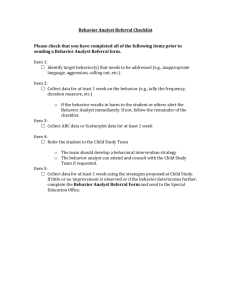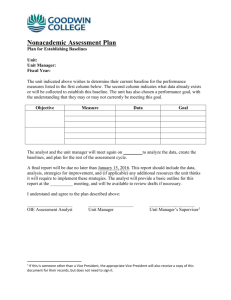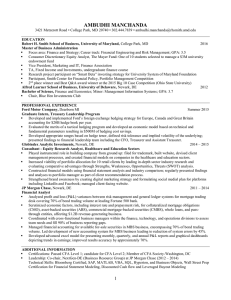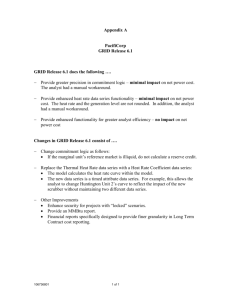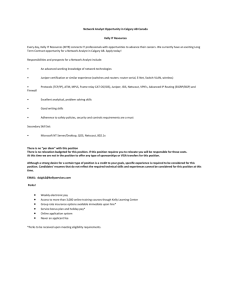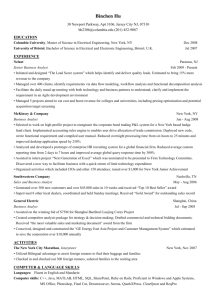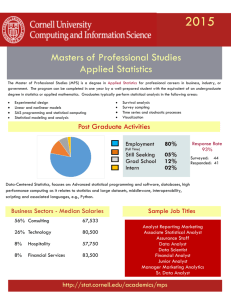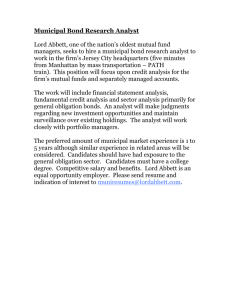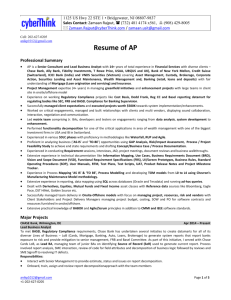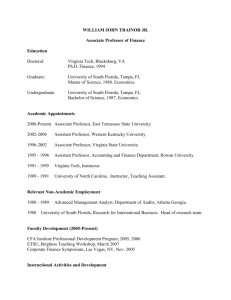Financial management is concerned with making decisions about
advertisement
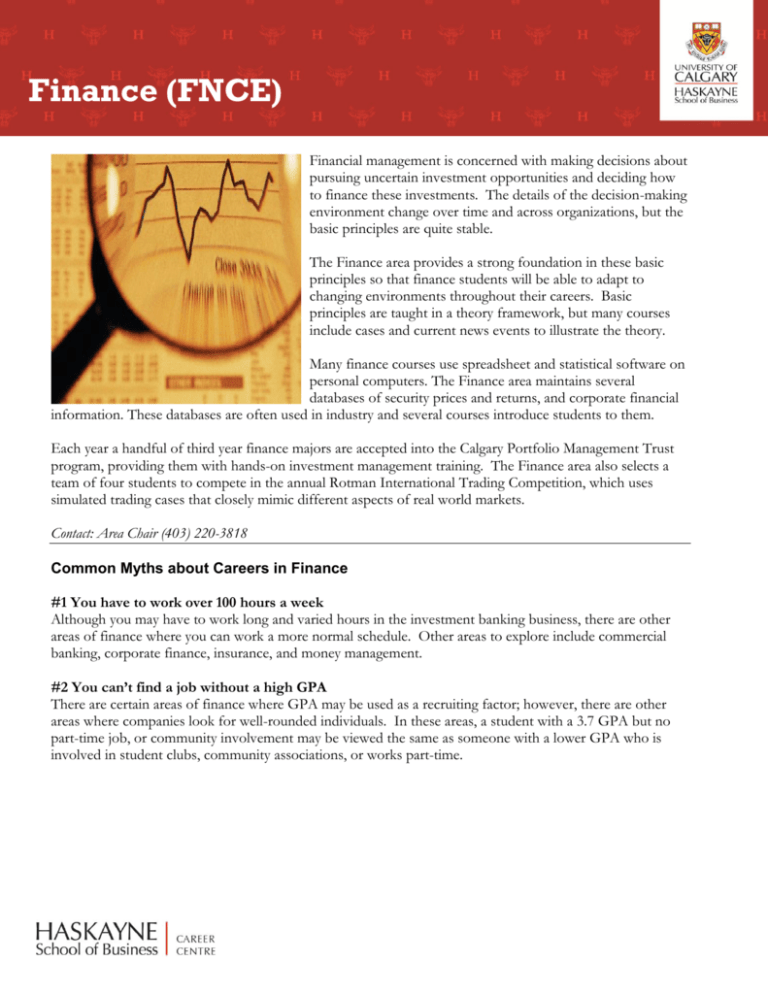
Finance (FNCE) Financial management is concerned with making decisions about pursuing uncertain investment opportunities and deciding how to finance these investments. The details of the decision-making environment change over time and across organizations, but the basic principles are quite stable. The Finance area provides a strong foundation in these basic principles so that finance students will be able to adapt to changing environments throughout their careers. Basic principles are taught in a theory framework, but many courses include cases and current news events to illustrate the theory. Many finance courses use spreadsheet and statistical software on personal computers. The Finance area maintains several databases of security prices and returns, and corporate financial information. These databases are often used in industry and several courses introduce students to them. Each year a handful of third year finance majors are accepted into the Calgary Portfolio Management Trust program, providing them with hands-on investment management training. The Finance area also selects a team of four students to compete in the annual Rotman International Trading Competition, which uses simulated trading cases that closely mimic different aspects of real world markets. Contact: Area Chair (403) 220-3818 Common Myths about Careers in Finance #1 You have to work over 100 hours a week Although you may have to work long and varied hours in the investment banking business, there are other areas of finance where you can work a more normal schedule. Other areas to explore include commercial banking, corporate finance, insurance, and money management. #2 You can’t find a job without a high GPA There are certain areas of finance where GPA may be used as a recruiting factor; however, there are other areas where companies look for well-rounded individuals. In these areas, a student with a 3.7 GPA but no part-time job, or community involvement may be viewed the same as someone with a lower GPA who is involved in student clubs, community associations, or works part-time. Profile of a Finance Graduate FNCE graduates are able to: compile existing data relevant to a problem analyze financial statements and identify areas for further investigation identify areas of weakness in financial planning and decision making (governance, current issues) perform analysis of investment and financing alternatives value basic and more exotic financial securities analyze and suggest potential instruments for financing alternatives understand how to create value in a corporation through the use of real options analysis understand and analyze the implications of commodity, technology, foreign exchange and interest rate risk on the investment and financing decisions understand the use of futures and options markets in order to manage risk and also how to earn a premium for providing risk management services understand global commodity markets: quantities, prices, risk and forecasting Further Opportunities for Finance Graduates Canadian Securities Course This course is a necessary foundation for people who want a career in financial services. The Canadian Securities Course explains Canadian investment products and financial markets, and is meant to develop candidates ability to analyze and select investment products for clients. To learn more visit: www.csi.ca Chartered Financial Analyst (CFA) The CFA is a professional designation, which signifies that the holder is competent in financial analysis. The program is focused on developing a candidates investment background and providing them with an ethical grounding that allows them to work anywhere in the world. To learn more visit: www.cfainstitute.org Student Clubs Financial Management Group FMG provides annual networking opportunities for students in the area of Finance, they also support student members by offering an exam package for FNCE 317. To learn more visit: www.ucalgary.ca/~fmg Calgary Portfolio Management Trust www.ucalgary.ca/~cpmt Nature of Work and Types of Jobs Bank Lending Officer commercial, consumer, or mortgage loans analyze and verify information to determine creditworthiness Corporate Analyst capital budgeting analysis and recommendations analyze and manage a firm’s risk profile Financial Analyst provide clients with analysis and guidance to help them with an investment decision research to determine a company’s value and project its future earnings Investment Compliance Officer ensure that the firm and its employees comply with the Securities Act ensure that written procedures are disseminated to all staff prepare periodic financial reports required by regulatory bodies Positions Obtained by Recent FNCE Graduates Account Manager, Commercial Markets Budget Officer Capital Budgeting Analyst Commodity Trader Equity Research Assistant Financial Accountant Financial Analyst Financial Services Representative Investment Banking Analyst Junior Treasury Analyst Real Time Power Trader Research Associate Underwriting Assistant

